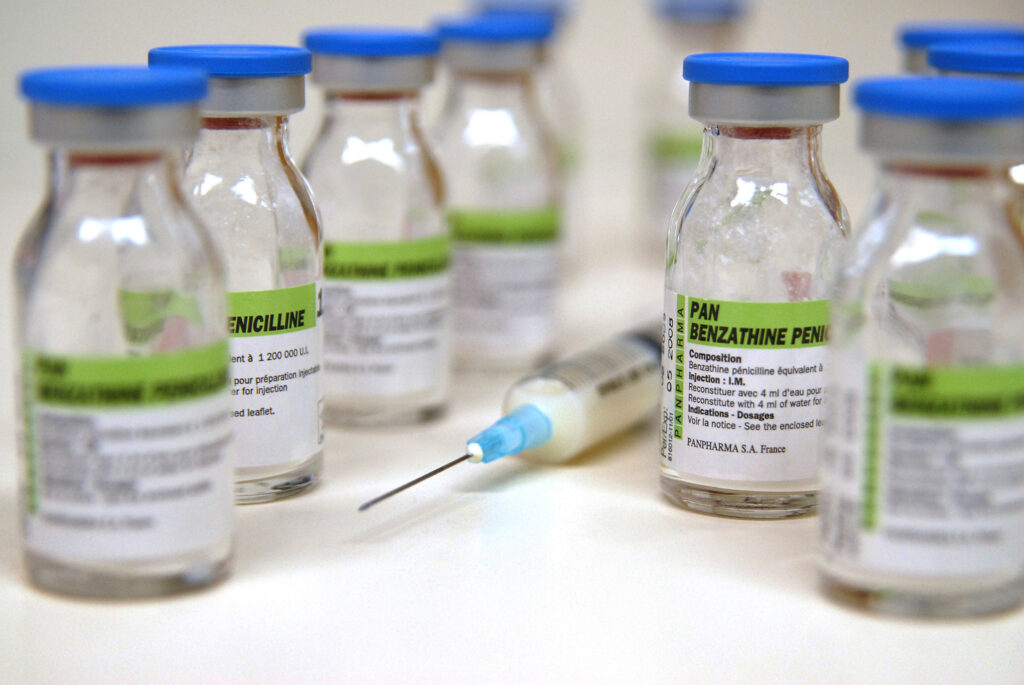The National Assembly is actively considering a proposal to reclassify syphilis, a sexually transmitted disease, from its current classification as a Class 4 infectious disease to a Class 3 infectious disease. Additionally, they are discussing whether to obligate all medical institutions to report syphilis cases, shifting from the current system of sample surveillance.
The National Assembly is seeking to upgrade the infectious level of syphilis as cases surge in Korea. (Source: Getty Images)
Syphilis is currently classified as a Class 4 infectious disease, along with sexually transmitted infections such as human papillomavirus (HPV) infection and influenza (flu), which are subject to sample surveillance.
Syphilis is a sexually transmitted disease caused by infection with the syphilis bacterium Treponema pallidum through sexual contact. It is mostly spread through sexual intercourse, but if a pregnant woman carries the bacteria, it can be transmitted to the fetus in utero and cause infection.
It can be treated with penicillin or an antibiotic injection, but to prevent reinfection, people should avoid sexual contact with people who are at high risk of infection.
According to the Korea Disease Control and Prevention Agency (KDCA), Rep. Kang Gi-yun of the ruling People Power Party and 10 other lawmakers from the same party have introduced the “Partial Amendment to the Enforcement Decree of the Infectious Disease Control and Prevention Act,” which aims to promote effective infectious disease management by upgrading syphilis to a Class 3 infectious disease.
Kang and other lawmakers plan to pass the law as soon as possible and make the amendment to take effect on Jan. 1 next year.
“Considering the occurrence of severe complications and the possibility of long-term transmission, it is necessary to upgrade syphilis to a Class 3 infectious disease, which requires accurate identification of outbreak trends, and switch to a full surveillance system,” Kang wrote in the bill.
Health authorities said, to effectively manage and prevent syphilis, the disease needs to be upgraded to a Class 3 infectious disease, like malaria and AIDS so that the number of infected people can be accurately determined through the full surveillance system.
Under the sample surveillance, some medical institutions are designated as sample surveillance institutions to collect and analyze data regularly and report them to the KDCA or competent health centers.
In contrast, full surveillance requires all medical institutions to report the occurrence of infectious diseases to health authorities on a case-by-case basis.
According to the Health Insurance Review and Assessment Service, the number of patients who visited hospitals with syphilis within one year of infection in Korea has steadily increased over the past three years, from 5,954 in 2019 to 6,293 in 2021.
Notably, in 2021, there were about 2.4 times more male patients than female patients.
Discovered on: 2023-05-31 01:06:07
Source: Surging syphilis cases prompt consideration of infectious disease level upg…



